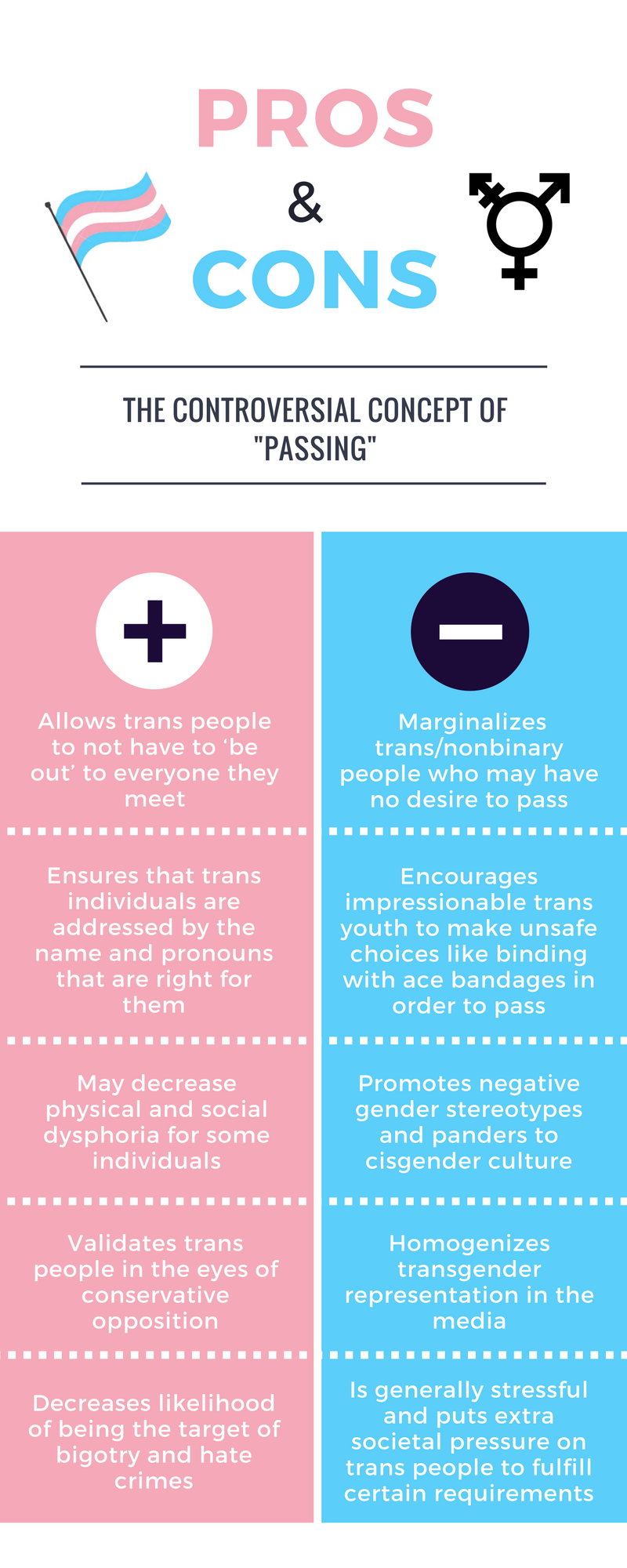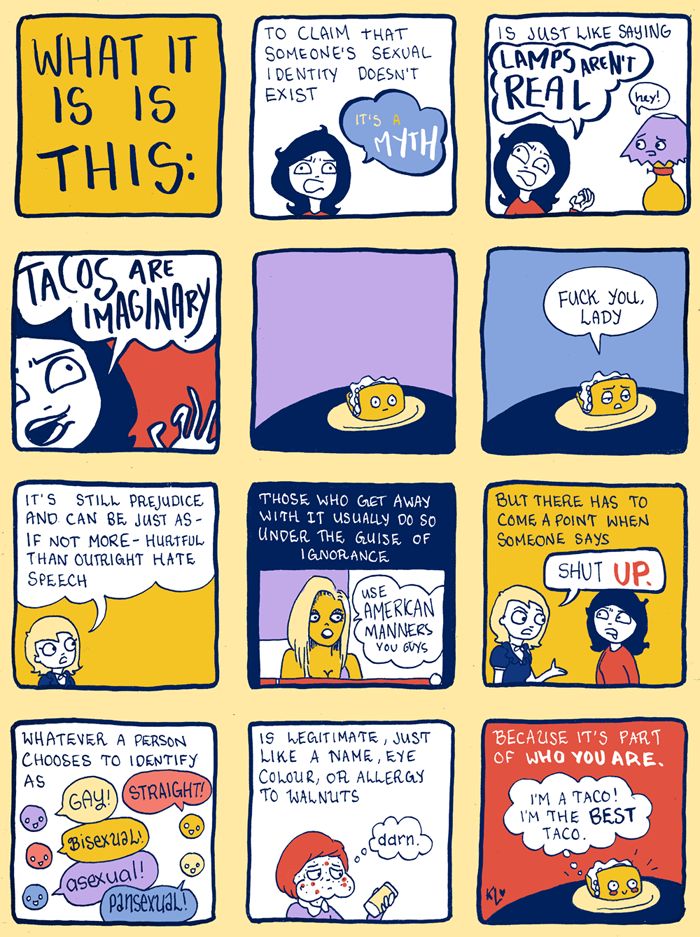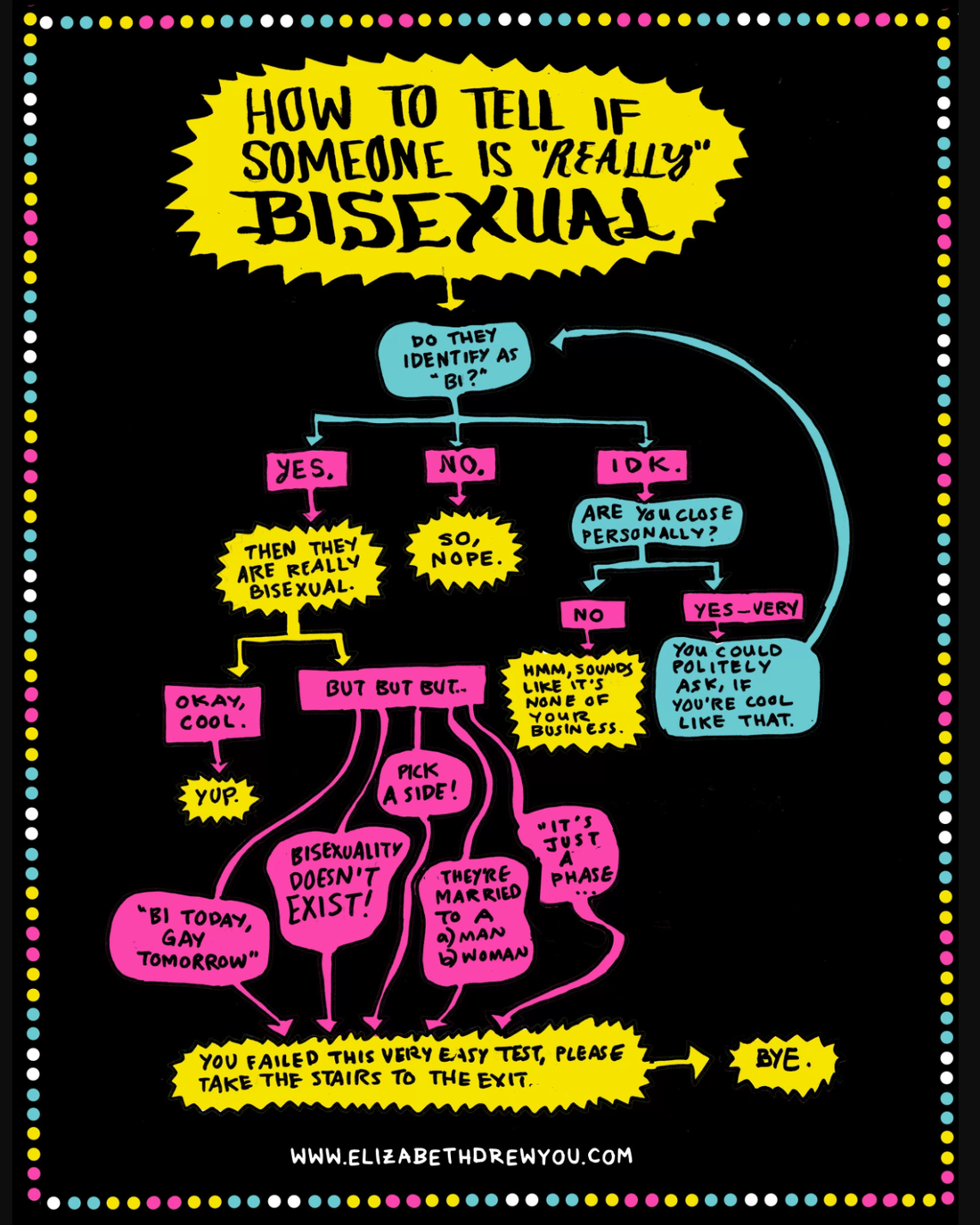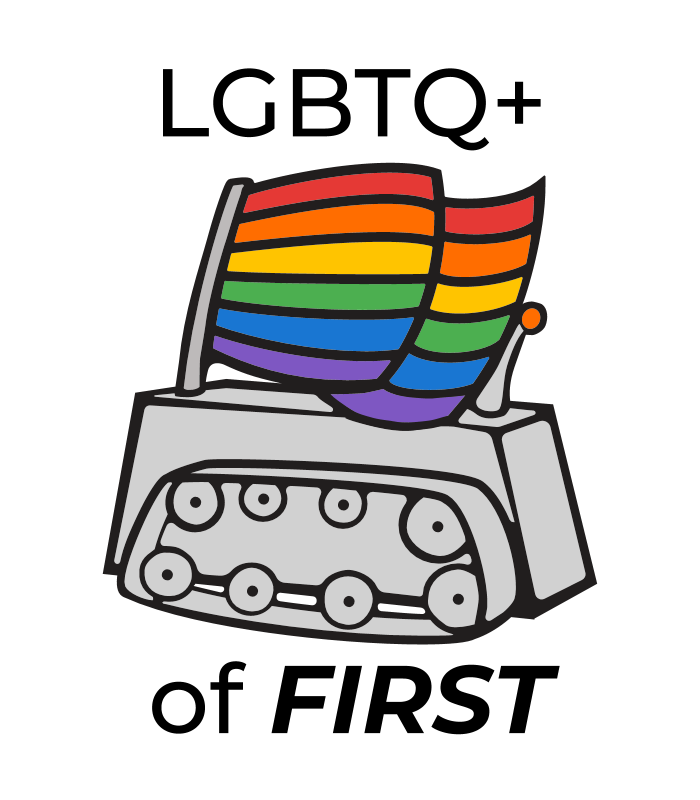|
Recently, an admin from LGBTQ+ of FIRST interviewed Tim’m West about LGBTQ+ representation and education in schools. Here’s what he had to say:
Please give a short introduction for people who may not know you. My name is Tim’m West; professionally and formally I lead Teach For America’s LGBTQ Community initiative. I am a longtime educator, youth advocate, and on the side I do some poetry and hip hop. What brought you to LGBTQ+ activism? I think namely my own personal experience. I grew up a queer kid in the 80’s in southwest Arkansas, and, for me, there weren’t positive queer role models. The only mentions of LGBTQ were negative. For me, the dearth of mirrors to see myself, the absence of LGBTQ people made a difference in how I saw myself. It made me want to teach. I felt that as a teacher I could contribute to making schools a space where students did see you and see that a black queer accomplished man existed and feel you are pretty awesome for that truth. Beyond teaching, that was really important work to do where representation is concerned. I went to school to study philosophy. I thought I would be a college professor, but I ended up leaving my PhD program, and I had two Masters degrees in rather obscure humanities areas, if at good institutions (The New School, Stanford). I got a job running an English department in a high school, so I fell into teaching youth and supporting their academic and social emotional development. Being around youth and understanding their challenges encouraged me to be a better example for them by bringing myself more fully into educational spaces. I have done that in schools as a man who is queer, and I have done that in schools as a man who is HIV positive, which sometimes leads to pushback like, “ooh students don’t need to know that about your personal life”. Still, I’ve taught in places that have high HIV incidence and prevalence. I’d be remiss not to share my own personal experience with them as a way of motivating sexual and emotional safety. What do you see as being the value of LGBTQ+ representation in schools in terms of the teachers? There’s been a lot of data [on the effects of representation], though not a lot of it has been done on the LGBTQ community. For example, in the African American community—and I can say this as an African American who had maybe one African American male teacher in all my schooling—it affected me to not seeing myself represented among the people who are teaching. There have been recent studies that show that students who see themselves represented do better. It’s connected to the reality that less than 2% of teachers in the US are African American men. Yet we know the representation of black boys in public schools is far higher. It actually just creates a situation where people who might be able to best connect and reach students aren’t present. Ultimately, it’s not to say a student can’t learn from anybody, but I think identity and how people see themselves is shaped by those who teach them. So if you’re LGBTQ and you don’t see any teachers or administrators identify that way, it sends a message, an implicit message that you LGBTQ people don’t belong in the places entrusted with our learning; or that if they exist in that space, they’d better be quiet about it. I think connotes a problematic idea of shame; that being LGBTQ is not something that you should be proud of. Being out as a queer teacher is not about the material being any different. What harm is there in knowing that a science or history teacher might be LGBTQ just as we know or assume our teachers are straight? One’s orientation might actually inform something unique about their approaches to teaching or world view. I think that’s important for students to see and experience. How can LGBTQ+ lessons be integrated into the classroom? I have an interesting belief in this, because I don’t believe that LGBTQ issues should be brought into the class independent of the need for rigorous content. By having an LGBTQ lesson, you’re tokenizing our identity as opposed to normalizing our identity. Why, if you’re talking about quantum physics, and let’s just say an important person in that field happens to be LGBTQ, is it a bad thing to mention that in the context of their innovation? It might be interesting for people to know that. If you’re looking at biology for example, why can’t there be discussions about gender or intersex people, or the myth that XX and XY pairings are the only and there isn’t biological and chromosomal diversity beyond that? It’s just bad science. There are ways to talk about LGBTQ issues and ideas that are not tokenistic. Content and culture can enable strong learning and aren’t oppositional. We don’t have to say: “let’s take a break from our real work and talk about LGBTQ people”. I’d say the same thing about exposure to different cultures; it’s not helpful to say: “let’s talk about black people for 10 minutes”. What are the major roadblocks to LGBTQ+ education in schools? I think you have different generations of people that haven’t had the exposure. Often, what I find in schools is that it’s not predominantly students who are creating difficult challenges for queer and transgender kids, it’s the teachers who have been there forever who refuse to divorce their personal biases from their teaching. A good example of that is when I taught rhetoric at a conservative school in suburban Texas, and I had to help students write anti-gay marriage papers. Did I like to do that? No. But it was my job as a teacher to help them question their beliefs and, sometimes, help them craft as strong an argument as possible against something I felt strongly about. It’s not my job to convince my students to believe the way I do. It is my job to create a safe arena for the development and maturation of students’ opinions and thoughts. The role of a strong teacher in school is to create that setting and environment. Unfortunately, according to the data we see, LGBTQ students are not safe in high schools. They face a lot more harassment, they drop out at higher rates, truancy rates are higher, any number of indicators. How can non-LGBTQ+ teachers be good allies? I think one not to hypervisibilize LGBT students by treating them different that others, but to truly be committed to creating a classroom environment where ALL students feel like they have something to contribute to the class. Some of that is about intentionality and exposure. In your curriculum, is there something that can speak to the diverse background and experiences in class? Teachers who do that really well are really appreciated by students. It’s like, “oh wow — this is not just about the specific academic topic, but we’re also learning about ourselves and the people around us.” It’s important for student development. Otherwise, teachers should be good allies to queer and trans kids because it’s their job (that’s the smart-ass answer). It’s not about whether or not you want to support LGBTQ students. As a teacher, should be fully committed to the education of your students. Truly being committed means that you advance a classroom culture where anti-LGBTQ microagressions aren’t tolerated; where all students feel safe in your class and not harassed, because that can ultimately impact their ability to learn well. Students feeling safe to learn, or not, is a reflection on you as a teacher. Passing is the holy grail for many trans people, the almighty goal that they seek through the trials of transitioning. It is defined by the LGBT Resource Center at the University of Southern California as “successfully being perceived as a member of your preferred gender regardless of actual birth sex”, but the concept of passing is accompanied by controversy. It requires trans people to fit into a rigidly structured binary and fulfill gender stereotypes they may not wish to conform to, but it can also improve quality of life and keep them safe under circumstances where not passing would put them at risk. With both these arguments in mind, is the concept of passing helpful or harmful for the trans community? With regards to the earlier question, there is no clear answer. The concept of passing will remain controversial, and it is up to the individual whether or not they want to pursue it. Therefore, it’s important to remember that your perspective on passing does not hold true for everyone and that there are very distinct arguments on both sides. Like so many issues, it’s not a matter of black and white. Do what makes you feel the most comfortable, and respect the decisions of the people around you.
Have something to add to the conversation? Need some advice? Leave a comment below or tweet us at @LGBTQ_of_FIRST Bisexuality is often joked about being “invisible” within the community. Although the number of bisexual people is about equal to gay and lesbian people combined, there is a lot of misinformation about it. So what is bisexuality? There are many different definitions, but the most popular is “attraction towards two or more genders”. http://kateordiecomics.com/archive/biphobia/ Now let’s go through some of the misconceptions about bisexuality: 1. Bisexuality is transphobic Bisexuality is not inherently transphobic. Someone who is bisexual can be attracted to men and women, women and nonbinary people, or any other combination of genders as long as it’s at least two. Trans men and women are men and women, so if a bisexual person is attracted to men and women, trans people are included in that. Some bisexual people can be transphobic, but it has nothing to do with their sexuality. 2. Everyone is a bit bi Maybe you are bisexual, but not everyone is. This is completely untrue, and it’s mostly used to discredit bisexual people. Some people are gay, some people are straight, some people are ace, some people are bi, and so on. Everyone’s sexuality should be equally respected and acknowledged, instead of pretending that everyone is bisexual. The beauty of sexuality and gender is that we are all different; we shouldn’t destroy that. 3. It’s just a phase/internalized homophobia Some people do identify as bisexual before realizing they’re gay, but many more people identify as straight before realizing they’re not. It’s okay to realize you aren’t actually bisexual, but the majority of people don’t suddenly realize they were wrong. Most people who are bisexual are as certain about their identity as straight people. No matter what, everyone’s identity should be respected. 4. Bisexual people are more likely to cheat Bisexual people are as likely to cheat as straight and gay people. They may be attracted to more genders, but just like a straight man doesn’t want to date every woman he sees, a bisexual person does not want to date every person they see. 5. Bisexual people get straight-passing privilege Yes, bisexual people are usually assumed straight when dating a gender different to their own. No, this is not a “privilege”. Anybody is able to pass as straight if they hide enough of themselves, and that is why “coming out” is a common event in the LGBTQ+ community. The ability to be ourselves is the entire reason the LGBTQ+ movement started. 6. Bisexual people are just pretending to be bi for attention Ok, you caught us, all bisexual people want attention. That’s exactly why I dislike everyone in a classroom watching me to the point that I can barely remember to not speak at 1000 miles per hour. In all seriousness though, bisexuality is no more a plea for attention than being straight is. If anything, the biphobia and homophobia that come with being bisexual make it a terrible way to get more attention. 7. Bi people are half gay, half straight Bisexuality is its own sexuality. It is not half of anything. One metaphor to explain this is the color purple. You don’t say, “Oh, that color is half blue and half red”, you just say it’s purple. Bisexual people can have different amounts of attraction towards different genders, but they’re still bisexual, just like different shades of purple are still purple. 8. Bi people in a “straight” relationship on TV aren’t real representation Any relationship with anyone from the LGBTQ+ community is not straight, no matter what gender the people in the relationship are. Although some representation, like a woman leaving her girlfriend for a guy, contributes to other stereotypes and is bad representation, a bisexual man dating a woman is as valid as a bisexual man dating a man. Bisexual people already face a lack of good representation, so the representation we have is very important. 9. Bi people love puns Yes, because puns are pan-tastic. I know, I can’t bi-lieve I made such a terrible pun either… Some bisexual-inclusive charities:
http://www.thetrevorproject.org https://www.hrc.org https://www.glad.org On May 20, 2017, STORM Robotics hosted its first annual FIRST Compass, an event where teams can give or watch presentations about different subjects in robotics. Representing LGBTQ+ of FIRST, Jaye and Sean presented this slide show to help teams in the MAR region and MAR itself learn how to be more inclusive to LGBTQ+ FIRST participants.
Since numerous teams seemed interested, LGBTQ+ of FIRST is sharing this presentation for all FIRSTers, especially those outside the MAR region and those who missed the event. Every LGBTQ+ students deserves a welcoming and inclusive environment. Hi all,
I’ve already posted an eighteen minute video, so I figure you probably don’t want to read another three hundred page essay about my TEDx talk. It was an insane opportunity to receive, to prepare for, and finally, to perform. If you don’t have the time to watch the entire video, that’s okay! Here’s a short breakdown!
Thank you for making the world a better place with me, Kiran L. 2826 P.S. This was the first and only time I’ve worn make-up. How do people that wear it everyday do things like drink water?! -Kiran L. 2826 This is a stressful time of year for all of us. Seniors are applying and hearing back from schools, juniors are planning visits, midterms are around the corner, and it’s also build season. It’s really easy to get carried away with the stress and forget about the outside world. Even in the midst of the FRC build season, we still have to remember the FLL and FTC teams that are building and competing for their competitions. Being a safe space and resource for LGBTQ+ youth in FIRST, we want to include everyone, not just FRC members. Life is really stressful as an LGBTQ+ kid, especially with an extracurricular activity as stressful and time consuming as any FIRST organization.
To all my fellow LGBTQ+ FIRSTers out there, I love you, we love you, and your identity is valid, no matter how young you are. Whatever you feel is what is true of your experience. You may change your labels as you come upon ones that fit you better, and that’s okay. Finding your place in the LGBTQ+ community is confusing, but I promise you, it is worth it. As your classmates mature, the taunting will stop and you’ll feel safer, Even if high school is rough, the world is so much bigger than your small community. The world is big and amazing and full of so many opportunities and support for you. Don’t give up. To the mentors and teachers, support your LGBTQ+ students, even if they are young. Puberty is a rough time for everyone, but especially for LGBTQ+ kids who are growing into an experience they weren’t prepared for. If a student comes out to you, support them. Lend them a shoulder if they need to cry, and build them up. Without support, almost 60% of LGBTQ+ people will attempt suicide, but if you give your students support, that high rate exponentially decreases. “Results suggested that a hostile school climate has serious ramifications for LGBT students but institutional supports can play a significant role in making schools safer for these students,” [x]. To everyone in FIRST, you can make a safer environment for LGBTQ+ youth. You can start a Gay Straight Alliance (GSA) or Sexuality and Gender Alliance (SAGA) at your lower schools. You can practice using gender inclusive languages such as “hey, students” instead of “hello, boys and girls.” You can introduce yourself with you pronouns (ex: “Hi, I’m Sean and I use he/him pronouns"). Most importantly, you can be there your your students, because being there makes a huge difference. Starting in two weeks, the Discord server that our staff has been using will be opened to the public. It’s open to anyone, student or mentor, LGBTQ+ or ally, to come to for support, advice, and community. We’re a pretty dynamic bunch, and here’s the ten things you need to know before entering our inner sanctum of insanity. One final piece of business! We’re opening up admin applications for anyone who’s interested in helping us with this resource. Fill out this form to apply, and we’ll review your application and get back to you before the server opens. We’re looking forward to hearing from you!
Hey Guys! This is a general LGBTQ+ in STEM presentation I made for Purdue FIRST Forums. I encourage people to use this presentation to educate their teams and coworkers on all things queer! The presentation also includes helpful LGBTQ+ resources. Link to presentation Here -Gus 3940
|
About LGBTQ+ of FIRST
LGBTQ+ of FIRST is a student run organization that advocates awareness and acceptance of LGBTQ+ students, mentors, and volunteers of FIRST Robotics. LGBTQ+ of FIRST reaches out to over 1000 members across the FIRST regions and fronts multiple outreach endeavors. Archives
June 2024
Categories
All
|





 RSS Feed
RSS Feed
